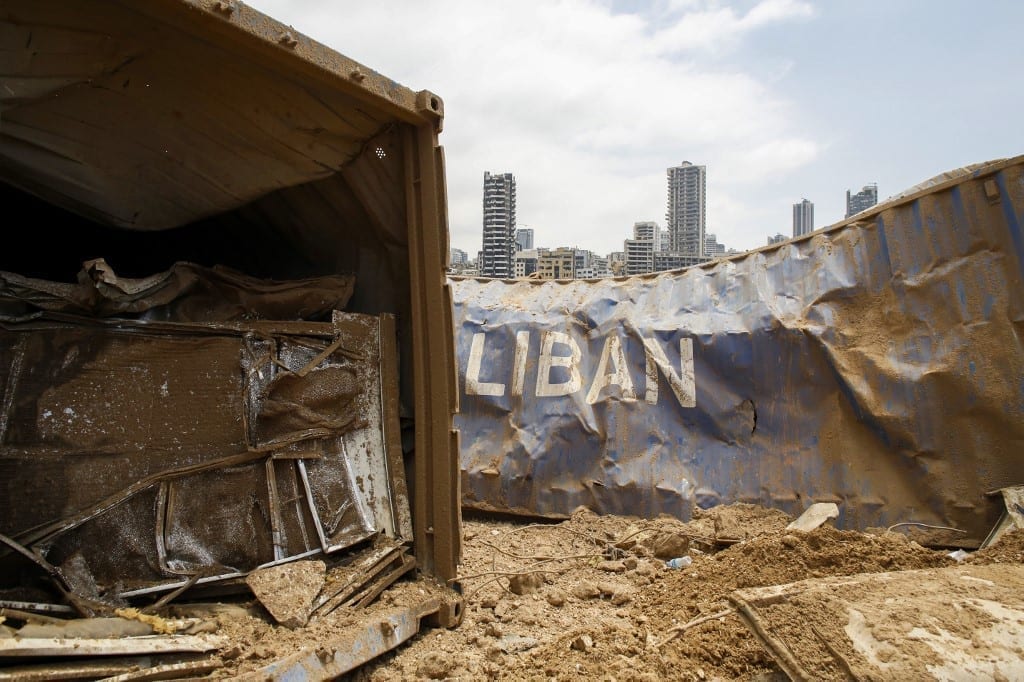Lebanon is facing a humanitarian disaster after the explosion of the warehouse no.12 in Beirut’s port in addition to the related catastrophe that hit the city and the country. However, there is a new looming crisis to be added to the numerous ongoing crises facing the country; an import crisis which shall lead to a food crisis.
Beirut’s devastated port is the largest maritime shipping and clearing point in Lebanon, as it handles nearly 70% of the country’s exports and imports.
Meanwhile, there are ongoing talks about diverting exports and imports activities to the port of Tripoli after the destruction of Beirut’s port, upon the recommendation of Lebanon’s Supreme Defense Council, as the explosion tore through the port’s warehouses and wheat’s stocks that were supposed to cover the local needs for six months.
This matter requires transparent management that would be serious, accountable, and aimed at serving the public interests instead of the interests of political parties and their partners, who were well aware of the presence of a dangerous warehouse in Beirut’s port, close to people’s homes, offices, and schools and yet remained silent, until the disaster happened.
However, the port of Tripoli -which needed expansion, support, and maintenance, while the State has long ignored its appeals- may not be able to handle the large scale of trade activities which were previously handled by Beirut’s port.
The port of Tripoli receives nearly 450 ships annually, while Beirut’s port receives around 2,000 ships annually. Moreover, the port of Tripoli has only one dock, whereas Beirut’s port has four docks.

In his statements to “Daraj,” Nasser Yassin, Professor of policy and planning in the American University in Beirut (AUB), has highlighted that “Lebanon will face a substantial crisis as the country imports 80% of the food basket, and the majority of these imports take place through Beirut’s port which was destroyed and became out of service for the time being. Furthermore, Beirut’s port has played a key role in transit operations as well, especially since the eruption of the Syrian conflict and Syria’s need to carry out its import operations through Beirut.”
Yassin pointed out that “Reconstructing the destroyed port may take years, and we do not trust this State or anything that it does. Many projects were due to be completed in a year, however, they took several years and were not accomplished.” And he followed: “There are numerous questions that we should ask about the port which is currently managed by an interim committee, questions about the customs and the governance of vital public facilities. These are questions that require answers for us to understand how this happened, and how to prevent our country from another catastrophe.”
“How can we trust that they will build another port in the absence of management and accountability?” asks Yassin.
He highlighted the aid that started to be dispatched to Lebanon to help the distressed country, noting that it is only temporary and cannot be depended on for a long time, especially since we may face a variety of crises. Besides, we suspect that there will be a lack of transparency in distributing this aid, and that it will not reach the people who need it the most, nor will be invested properly. We know that our leaders prioritize their interests and how to take advantage of anything, even when it is about humanitarian aid.”
Will the Dollar Surge?
There is another question about the dollar and whether it will surge even more in light of the economic and livelihood crises, as well as the humanitarian and social catastrophe facing the country, especially since the Lebanese State has announced that it shall compensate the people affected by this catastrophe. Compensations will be disbursed in Lebanese liras, which means that more liras will be printed, which in turn will lead to further inflation and increase of the dollar’s value against the already plummeting Lebanese lira.
The port that used to be…
Beirut’s port is located in a strategic area linking the commercial markets of Asia, Europe, and Africa. Therefore, the port, which was inaugurated in 1894, was used to import basic materials and then export them to Middle Eastern countries via Lebanon. Thus, Beirut’s port was the key port in Lebanon and among the key ports in the eastern Mediterranean basin.
The port had direct connections with 56 ports on the three continents, and received goods and exported them in cooperation with 300 ports around the world.
Beirut’s port is composed of four docks which are 24 meters deep, in addition to a fifth dock that was under construction. The port had 16 quays, and many warehouses and wheat silos.
During 2005 and 2018, the cargo tonnage transported through the port has increased by 4.6 percent per annum on average, from 4.48 million tons per annum in 2005 to 8 million tons on average in 2018.
After the collapse of the port and the halt of its operations, an open crisis is looming in the country even though some people have ruled out the possibility of a wheat or flour crisis, thanks to the food aid sent to Lebanon by several countries. But in truth, no country can ever recover from a catastrophe at the scale of the August 4th explosion with only food and humanitarian aid. First, this matter requires transparent management that would be serious, accountable, and aimed at serving the public interests instead of the interests of political parties and their partners, who were well aware of the presence of a dangerous warehouse in Beirut’s port, close to people’s homes, offices, and schools and yet remained silent, until the disaster happened.






